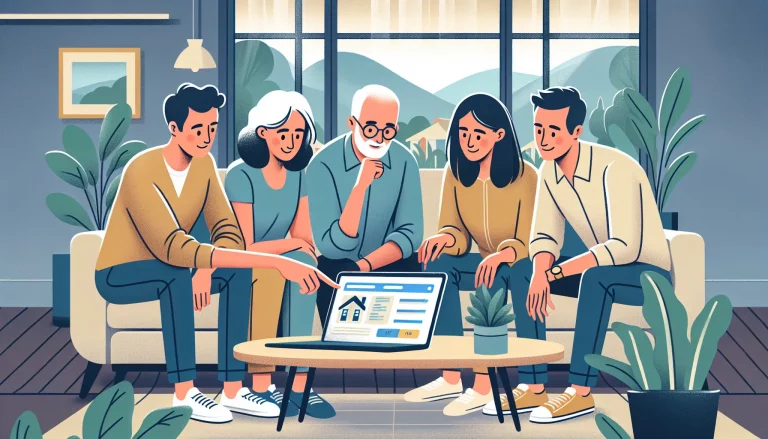Key Takeaways
- Selling your house without a realtor can save you significant commission fees, allowing for potential savings of thousands of dollars.
- Homeowners gain greater control over the selling process, including the ability to set timelines, market the property, and manage negotiations directly with buyers.
- While there are advantages, selling independently demands considerable time and effort to handle marketing, scheduling, and negotiations effectively.
- Legal and regulatory challenges exist that may complicate the sale, requiring a solid understanding of local laws and necessary disclosures.
- Key steps in the process include preparing your home for sale, effectively marketing the property, and carefully negotiating offers to ensure a successful transaction.
Selling a house without a realtor can feel like a daunting task, but it’s a path many homeowners choose for various reasons. Whether it’s to save on commission fees or to have more control over the process, going solo has its pros and cons. We understand that navigating this route can raise questions about pricing, marketing, and closing the deal.
Pros of Selling Your House Without A Realtor
Selling a house without a realtor presents several significant advantages. We can highlight these benefits to help homeowners make informed decisions.
Cost Savings
Cost savings rank among the top reasons to sell a house without a realtor. Selling independently eliminates the typical 5-6% commission fees associated with real estate agents. For instance, if we sell a home priced at $300,000, avoiding a 6% commission results in a savings of up to $18,000. This financial relief allows us to invest more in our next property or cover moving costs. Additionally, we can negotiate repairs and closing costs directly with buyers, further enhancing our savings.
Control Over the Process
Control over the selling process is crucial for many homeowners who choose to go it alone. We can set our own timelines, deciding when to show the house and how to market it without external input. For example, we can list the property when interest is high, potentially increasing the sale price. We also gain the freedom to select who enters our home and the duration of open houses. This autonomy can lead to a more personalized experience, matching our unique needs and preferences. Managing negotiations directly allows us to foster relationships with potential buyers, creating a more engaging selling atmosphere.
Cons of Selling Your House Without A Realtor

Selling a house without a realtor presents several challenges that we must consider carefully. Despite the potential for cost savings and increased control, various drawbacks can complicate the process.
Time and Effort Required
Selling a house independently demands substantial time and effort. We manage every aspect of the sale, including pricing, marketing, and scheduling showings. This responsibility can quickly become overwhelming, particularly for those with full-time jobs or other commitments. For instance, creating effective listings requires research into local market trends, which can take hours. Responding to inquiries and negotiating with buyers also necessitates significant time investment. As we navigate these tasks, it’s crucial to assess whether this time commitment aligns with our personal and professional priorities.
Legal and Regulatory Challenges
Navigating the legal landscape of selling a home without professional assistance can introduce significant challenges. We face a complex web of regulations, including required disclosures and local laws that can vary widely. Knowledge about title transfers and property condition disclosures becomes essential, as errors can lead to costly delays or even legal disputes. For example, failing to disclose known issues with the property could result in litigation after the sale. Understanding the tax implications of our sale is also vital to avoid unexpected financial burdens later. Properly addressing these issues requires careful attention to detail, which could be daunting without the guidance of an experienced realtor.
Steps to Selling Your House Without A Realtor
Selling a house without a realtor involves several critical steps to ensure a successful transaction. We break these steps down into three main categories: preparing your home for sale, marketing your property, and negotiating offers while closing the sale.
Preparing Your Home for Sale
Preparing our home for sale requires a strategic approach to create an appealing environment for potential buyers. We start by decluttering and depersonalizing the space, allowing buyers to envision themselves living there. Updating minor repairs, such as fixing leaky faucets or repainting walls, can enhance the overall presentation. Additionally, staging the home—arranging furniture and decor to highlight its strengths—demonstrates its potential. We shouldn’t overlook professional photos, as high-quality images significantly attract online interest. Ensuring all necessary disclosures, like property condition and previous repairs, are ready promotes transparency and builds buyer trust.
Marketing Your Property
Marketing our property effectively requires a multi-faceted strategy. We utilize online platforms, such as Zillow and Facebook Marketplace, to reach a broad audience. Creating a dedicated listing with clear descriptions, high-quality images, and essential features, like square footage and local amenities, captures buyer attention. Hosting open houses and private viewings allows potential buyers to experience the home firsthand. Networking within the community can also yield leads, as word-of-mouth marketing remains powerful. We should consider virtual tours as a growing trend that can engage remote buyers and expedite interest.
Negotiating Offers and Closing the Sale
Negotiating offers is a crucial step that involves careful consideration of buyer proposals. We need to evaluate each offer objectively, comparing price points and terms for the most favorable outcome. Communication with buyers should remain open and professional, enabling us to counteroffer when necessary. Once we agree on a price, the next step involves completing necessary paperwork, including the purchase agreement. Staying organized during this process is vital, as we navigate title transfers, inspections, and potential contingencies. Finally, understanding closing costs—such as attorney fees and taxes—ensures we’re financially prepared for the sale completion.
In real estate, each step we take can significantly impact our outcome, urging us to remain diligent and informed throughout the process.
Conclusion
Selling our house without a realtor can be a rewarding yet challenging journey. We gain financial freedom and control over the process but must be prepared to tackle the complexities that come with it. Each step we take—from preparing our home to negotiating offers—plays a vital role in ensuring a successful sale.
By weighing the pros and cons and following a structured approach, we can navigate this path with confidence. Whether we’re looking to save on commissions or simply want to take charge of our sale, understanding the intricacies involved will help us make informed decisions. Embracing this DIY approach could lead to a fulfilling experience and a successful transaction.
Frequently Asked Questions
Why would someone sell a house without a realtor?
Selling without a realtor allows homeowners to save on commission fees, which typically range from 5-6%. This approach also provides greater control over the sale process, enabling sellers to manage timelines, marketing strategies, and negotiations directly with potential buyers.
What are the main challenges of selling a house without a realtor?
Key challenges include managing the extensive time and effort required to handle the sale independently, navigating complex legal and regulatory requirements, and understanding the market for proper pricing. These factors can be overwhelming for individuals with full-time jobs or other commitments.
How can I effectively market my home without a realtor?
You can market your home by utilizing online platforms, creating high-quality listings with attractive photos, hosting open houses, and considering virtual tours. Engaging social media and local community groups can also boost visibility and attract potential buyers.
What steps should I take to prepare my home for sale?
Prepare your home by decluttering, making necessary repairs, staging the property for visual appeal, and ensuring you have high-quality photos for listings. A well-prepared home can significantly enhance buyer interest and lead to quicker sales.
What should I know about negotiating offers without a realtor?
When negotiating, carefully evaluate all offers while keeping your financial goals in mind. Be organized with relevant paperwork and understand closing costs. Clear communication and flexibility can help you reach a satisfactory agreement with buyers.






